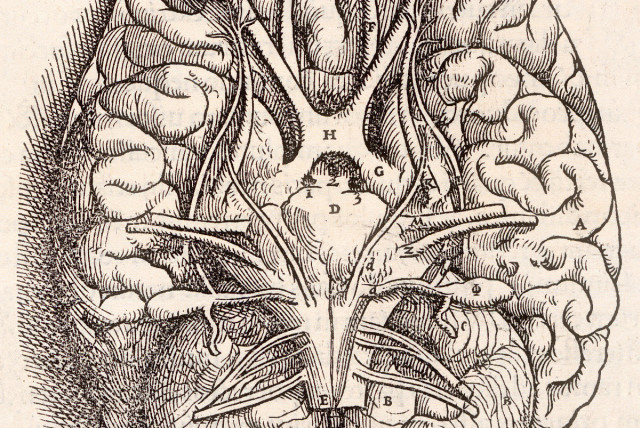When can cell tissue be called human? – study

A human, which is referred to as a natural person, is someone born of a womb under the law. Will this soon change?
Human brain tissue, grown in labs through the use of stem cells, has created new philosophical and legal questions, which a new study explores.
The artificial brain tissue feeds on nutrients, grows and mimics the structure of an organic human brain and its development. The tissue is often used by scientists to study and test treatments for neurological conditions.
A peer-reviewed article, seeking to finally decipher where the line of human tissue and human can be drawn, was recently published in the Journal of Law and the Biosciences.
What does it mean to be human?
A legal person and a person have two different meanings. A legal person is considered to be any entity that holds legal rights and obligations, a meaning that can extend to private companies, although non-human legal persons may also be referred to as juridical persons.
A human, which is referred to as a natural person, is someone born of a womb. This definition may soon need updating with advancing scientific developments. A tweet by Elon Musk led to heavy discussions on investing in an artificial womb to combat declining birth rates, Vice reported.
“Although human brain organoids do not constitute natural persons at present, the likelihood of their potential to become natural persons in the near future requires more thorough consideration in advance of that reality occurring,” said first author Masanori Kataoka, researcher in Hiroshima University’s Graduate School of Humanities and Social Sciences. “Research on linking human brain organoids with bodies is expected to advance rapidly in the coming years, whereas the conditions of natural personhood, especially viability and birth are becoming increasingly flexible and contentious.
Why does the line need to be drawn?
“The moral status of human brain organoids has often been discussed, but their legal status has rarely been discussed,” said co-author Tsutomu Sawai, associate professor in the Graduate School of Humanities and Social Sciences at Hiroshima University. “To clarify the legal status of human brain organoids will illuminate issues such as what information should be informed to the cell donor, to what extent the donor’s consent justifies the research, and what uses are acceptable.”
“Current brain organoid technology is in many ways quite limited, and it has not yet reached a stage where human brain organoids could become natural or juridical persons,” Sawai said. “However, as we have emphasized, this issue will soon become urgent once brain organoid technology has been further developed. In preparation for that time, it is essential to examine the accompanying questions thoroughly and in advance; we have taken the first step in that direction.”
The researchers explained that “In many countries, the legal end of a natural person’s life is defined either by the irreversible cessation of the heart’s beating or by brain death—when one’s brain irreversibly stops all neural activities, one is legally dead at that point. Given this criterion, if a human brain organoid can stimulate the relevant neural activities, then surely it is alive as a natural person? Let us call this argument the ‘argument from the brain death criterion.’”
An experiment was conducted as part of another study whereby brain tissue was proven to have a response to light stimuli.
The researchers theorize that in the future, brain tissue will be able to connect with other organs and systems. The researchers add that “If an entity could qualify as a natural person simply by having the capacity to integrate a relatively simple body, then human brain organoids may meet this condition in the near future.”
In further trying to understand if the tissue can be called a ‘natural person,’ the researchers state that the tissue cannot be thought of as equivalent to an Embryo or foetus because it does not have the potential to develop into a full person. However, the researcher did note that a foetus born before 40 weeks of gestation can be considered a natural person as long as they were born alive.
In the United States, a foetus is considered a person at any stage of development providing it showed signs of breath, a heartbeat and pulsation of the umbilical cord, or voluntary muscle movement.
Additionally, the writers assert that under current legislation, no matter how much the brain tissue can develop in the future it cannot be considered human. While the current legislation may be suitable now, future developments may not be appropriate.
Jewish law on personhood
According to the Talmud, a foetus’ status transitions to a person after birth. Although this, like many things in the Talmud, remains a hotly debated topic.
“Whether one kills an adult or a day‑old child, a male or a female, he must be put to death if he kills deliberately…provided that the child is born after a full‑term pregnancy. But, if it is born before the end of nine months, it is regarded as an abortion until it has lived for thirty days, and if one kills it during these thirty days, one is not put to death on its account,” Maimonides is cited as writing by My Jewish Learning.
Jerusalem Post Store
`; document.getElementById("linkPremium").innerHTML = cont; var divWithLink = document.getElementById("premium-link"); if (divWithLink !== null && divWithLink !== 'undefined') { divWithLink.style.border = "solid 1px #cb0f3e"; divWithLink.style.textAlign = "center"; divWithLink.style.marginBottom = "15px"; divWithLink.style.marginTop = "15px"; divWithLink.style.width = "100%"; divWithLink.style.backgroundColor = "#122952"; divWithLink.style.color = "#ffffff"; divWithLink.style.lineHeight = "1.5"; } } (function (v, i) { });

